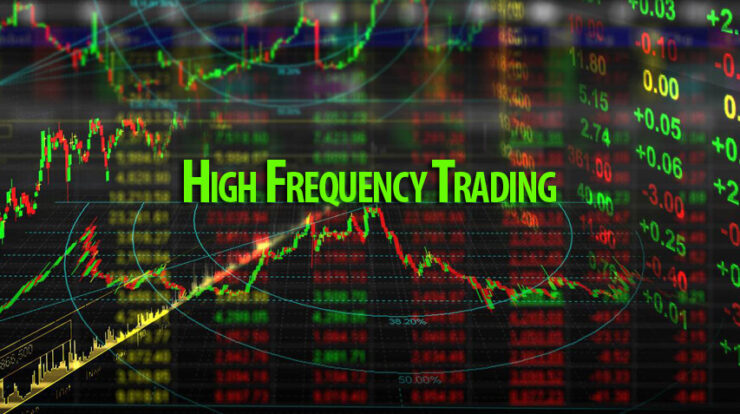
These sophisticated trading systems use cutting-edge technology and extremely powerful computers to execute transactions in fractions of a second, allowing them to quickly capitalize on market changes and arbitrage possibilities. In this high-frequency trading tutorial, we explain how it works, whether it can be successful, and how to get started with an HFT system. We also discuss some of the benefits and drawbacks of employing automated trading tactics, as well as how to choose the ideal broker for using a high-frequency trading system.
The best High-Frequency Trading brokers
Our research team has analyzed over 60 of the industry’s largest brokers (learn more about how we test). To create our list of the best forex brokers for high-frequency trading, we evaluated and researched the leading forex brokers that provide algorithmic trading and API access:
- Pepperstone: High-frequency trading (HFT) using MetaTrader 4 (MT4) and MetaTrader 5 (MT5)
- IC Markets: Excellent for HFT on MetaTrader systems and with the cTrader API
- Tickmill: HFT using the MetaTrader platform suite
- FXCM: High-frequency trading (HFT) via numerous APIs and MetaTrader 4 (MT4)
- HFT using FP Markets’ MetaTrader platform suite
What Exactly is High-Frequency Trading?
High-frequency trading (HFT) is a sort of algorithmic trading system that executes a huge number of deals within extremely short time frames during the trading day. A conventional algorithmic trading system may conduct hundreds of trades per day, but a high-frequency trading system may execute thousands of trades in seconds. HFT systems, which are often used by institutions or professional traders, use complicated mathematical algorithms to swiftly evaluate market prices and news events in order to discover trading opportunities.
HFT systems need a large amount of computing power as well as sophisticated high-frequency trading software. These high-powered trading systems can open and close trades in milliseconds. Latency (the time delay between when an order is made and when it is executed) is so important for HFT trading methods that the servers that host these advanced trading systems are often required to be physically near the broker’s data center or trading venue.
Is it allowed to Trade forex at Rapid Speeds?
High-frequency trading is, in fact, legal. However, it is conceivable that your broker may not allow you to use high-frequency trading tactics. Some brokers outright forbid price-driven techniques (such as scalping) or latency-driven arbitrage methods. To find out if your HFT method is authorized, contact your broker directly, and always carefully read your broker’s terms and conditions.
If your broker does allow HFT tactics or systems, take note of the exact types of trading circumstances that are offered, as well as your broker’s execution methods and trading charges. Even if your broker permits high-frequency trading, it may not be a feasible strategy if the costs are unreasonably high.
HFT systems are legal, but they are also contentious. Some well-known HFT tactics, like spoofing and front-running, are simply prohibited.
Spoofing happens when a high-frequency trading system places a large number of orders quickly and then cancels those orders before they can be executed. This method is used to create a fake feeling of demand for a certain asset or instrument (or to fraudulently drive demand lower).
Front-running: HFT traders (or institutions) can sometimes detect big upcoming orders for a certain asset or instrument in the market before the orders are executed. This is usually done illegally and with insider (or non-public) knowledge. Then, using the speed of HFT systems, these traders or institutions may swiftly acquire significant amounts of that asset, which can then be turned around and sold for a profit.
Having said that, during the last 20 years or so, rules and regulations have been put in place to discourage actions such as front-running and to generally safeguard market integrity and protect market players. In order to level the playing field, certain securities exchanges, for example, have introduced a global speed bump that slows down all incoming orders. Many forex market firms and trading venues now restrict HFT methods that are latency-driven or purely focused on price arbitrage.
The Benefits and Drawbacks of High-Frequency Trading
Pros
- Computers make the decisions. Because high-frequency trading is carried out by complicated algorithms and powerful computers, these methods will never make judgments based on human emotion or psychology.
- HFT systems are extremely quick. High-frequency trading algorithms may react quickly to market movements and worldwide news events that can have an influence on markets.
Cons
- Computers are not without flaws. Although HFT algorithms and systems are complicated, they do not make faultless selections. They may lack the expertise to discern whether a market-moving event is genuine, and they may fail to respond effectively to volatility.
- HFT is not suitable for everyone. To properly build and sustain an HFT strategy, an enormous degree of technical competence is necessary.
Stockbrokers who excel at High-Frequency Trading
Our research team evaluated a variety of stockbrokers who provide algorithmic trading, API access, and cash equities. Interactive Brokers is our top selection for high-frequency trading due to its inexpensive trading expenses and connection to over 100 trading venues worldwide. If you want to learn more about Interactive Brokers’ stock trading platform, you may visit our sister site, StockBrokers.com, where we have a comprehensive evaluation of the company.
Our best suggestions for employing high-frequency trading tactics to trade equities are as follows:
- HFT using the API from Interactive Brokers
- CMC Markets: Institutions can access CMC Markets.
- Bank Saxo: HFT using an open API site
- HFT using WebSocket and Rest APIs at Capital.com
Can a smartphone app perform high-frequency trading?
In general, you cannot run a truly high-frequency trading system from your mobile device. Having said that, there are a number of third-party solutions available to traders that enable them to execute algorithmic trading programs on a range of platforms and devices. Capitalize.ai, for example, is a platform that allows you to create algorithmic HFT systems using normal (code-free) language. Trading using Capitalize.ai is not done on the conventional scale of HFT, but it does provide a sort of algorithmic trading that, for the time being, is as close to executing a full-fledged HFT strategy from your mobile device as you’ll get.
Capitalize.ai is available at the following forex brokers for algorithmic trading in forex:
- Interactive Brokers, Inc.
- FOREX.com
- FXCM
- AvaTrade Pepperstone
Can you perform high-frequency forex trading?
Yes, there are numerous algorithmic trading tools that forex traders may use to trade at a high frequency—thousands of orders each day. Though HFT programs are normally found at institutional trading desks, retail forex traders are increasingly gaining access to algorithmic trading systems, including some that may fit the criteria of an HFT.
To set up a high-frequency trading strategy for forex, you’ll need to decide what kind of strategy you’ll use and how orders will be triggered programmatically, whether you’re using your own software or a third-party trading platform like MetaTrader.
Check out our comprehensive guide to the top trading API brokers as well as our guide to the best MetaTrader brokers.
Price-sensitive HFT techniques would almost certainly utilize limit orders, whereas execution-sensitive methods may use market orders.
Take note that many brokers provide numerous execution techniques across all account types and platforms.
Is it lucrative to trade forex at rapid speeds?
Yes, forex traders may benefit from high-frequency trading tactics. However, all trading techniques, even those that use HFT systems, include risk. When developing a forex trading strategy, keep in mind that the great majority of retail forex traders lose money. Finding success and generating money with an HFT system is heavily dependent on the HFT system you choose and its configuration.



